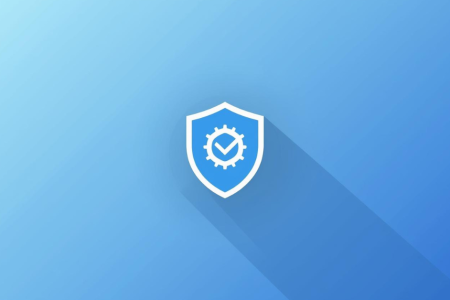Latest Azure Infrastructure Updates – March 2023
Welcome to a fortnightly blog where we cover what is new in Azure Infrastructure and how it may affect you. We will be looking to cover the major updates in the previous fortnight, explain what they are and provide recommendations on what to do.
Bicep
1. The monthly release 0.14.x was released – https://github.com/Azure/bicep/releases
Summary: Bicep is on a monthly release cadence and this is the latest. Note that there have been an additional 2 releases this month for bug fixes.
What Do I Need to Do? Upgrade to the latest version. One particular feature worth calling out in this release is the ability to copy and paste in VS Code any ARM JSON into a file and have it be decompiled to Bicep. To enable update the Bicep extension in VS Code then change this parameter:
Now when you copy ARM JSON and right click you should have the option to Paste JSON as Bicep. Note that the file you are copying and pasting into must be identified by VS Code as Bicep (either via the extension *.bicep or marking the language as Bicep)
App Service Environment and Azure Functions Dedicated Hosting
1. General availability: Automatic Backup for App Service Environment and Azure Functions Dedicated Hosting – https://azure.microsoft.com/en-us/updates/public-preview-azure-front-door-integration-with-managed-identities/
Summary: The automatic backup function that has been available for regular App Service is now also available for dedicated hosting options.
What Do I Need to Do? Nothing. Automatic backups will be applied automatically. See the link above for details.
Azure Backup
1. Azure Backup: Enhanced experience for creating and managing private endpoints for Recovery Services vaults is now available – https://azure.microsoft.com/en-us/updates/azure-backup-enhanced-experience-for-creating-and-managing-private-endpoints-for-recovery-services-vaults-is-now-available/
Summary: Multiple improvements have been made to the way Azure Backup works with Private Endpoints.
What Do I Need to Do? Nothing, this is more of an FYI. Note the following improvements:
- Ability to create private endpoints without managed identities
- Use fewer private IPs per vault
- No separate private endpoints are now required to be created for blob and queue services
Azure Cache for Redis
1. General availability: Improved geo-replication for Azure Cache for Redis – https://azure.microsoft.com/en-us/updates/general-availability-improved-georeplication-for-azure-cache-for-redis-2/
Summary: Several enhancements have been made to the passive geo-replication functionality offered on the Premium tier of Azure Cache for Redis including the ability to initiate a failover between geo-primary and geo-replica caches with a single click or CLI command, eliminating the hassle of manually unlinking and relinking caches.
What Do I Need to Do? Nothing, more of an FYI if you’re using the premium tier of Redis. Being able to initiate a failover with a single click is a great improvement.
Azure Kubernetes Service (AKS)
1. Release 2022-02-12 – https://github.com/Azure/AKS/releases/tag/2023-02-12
Summary: The latest AKS API release. New releases include feature updates, bug fixes etc. Subscribe to be notified of new releases from the AKS GitHub page https://github.com/Azure/AKS/
What Do I Need to Do?
- If you are using pod security policies note that they will be removed completely from AKS as at the 2023-06-01 API with AKS 1.25 version or higher. Migrate to pod security admission controller before that date or better yet, look to migrate to Azure Policy, especially when managing more than one AKS cluster as the pod security admission controller is best used when running only one cluster.
- Starting from the release of 2023-02-19, clusters with automatic node image upgrades (node-image auto-upgrade channel) will have nightly in-place patches turned off. This means that security patches will only be applied when the node image is updated. Look out for the release of the OS Upgrade Channel for better control over this.
- Kubernetes 1.26 in now in preview – start the testing cycle again.
1. Public Preview: Customer-managed keys for Azure NetApp Files volume encryption – https://azure.microsoft.com/en-us/updates/public-preview-data-encryption-at-rest-of-azure-netapp-files-volumes-with-customermanaged-keys-2/
Summary: Encryption with customer-managed keys (CMK) for Azure NetApp Files volumes allows you to bring your own key (BYOK) for data encryption at rest.
What Do I Need to Do? If you have a requirement for higher security for your file storage, then this feature may be of interest. It does require you to manage your own keys so does come with the overhead of running a Certificate Authority. For most customer platform managed keys (when MS manages the keys on your behalf) is sufficient.
Summary: Azure SQL Serverless now supports Hyperscale allowing automatic scaling for much larger workloads.
What Do I Need to Do? If you have SQL workloads with large performance requirements and variable demand, look at trialling this new feature as it will save you cost over running a static SQL server. The new feature supports:
- Automatic scaling of compute up to 80 vCores and 240 GB memory per replica
- Automatic scaling of local disk cache up to 720 GB per replica boosting IO performance
- Automatic scaling of database storage up to 100 TB
Azure Virtual Machines
1. Public preview: New General-Purpose VMs – Dlsv5 and Dldsv5 – https://azure.microsoft.com/en-us/updates/public-preview-new-generalpurpose-vms-dlsv5-and-dldsv5/
Summary: New General-Purpose Virtual Machine size allows 2GiBs of RAM per vCPU for situations where less RAM per vCPU is required.
What Do I Need to Do? Consider these new VM sizes for when you are deploying web servers, gaming, video encoding, AI/ML, and batch processing.
2. General availability: New cost recommendations for Virtual Machine Scale Sets – https://azure.microsoft.com/en-us/updates/general-availability-new-cost-recommendations-for-virtual-machine-scale-sets/
What is it? Azure Advisor can now provide recommendations on cost savings for Scale Sets – previously only Virtual Machines were supported. If you have Scale Sets deployed check Azure Advisor for recommendations.






